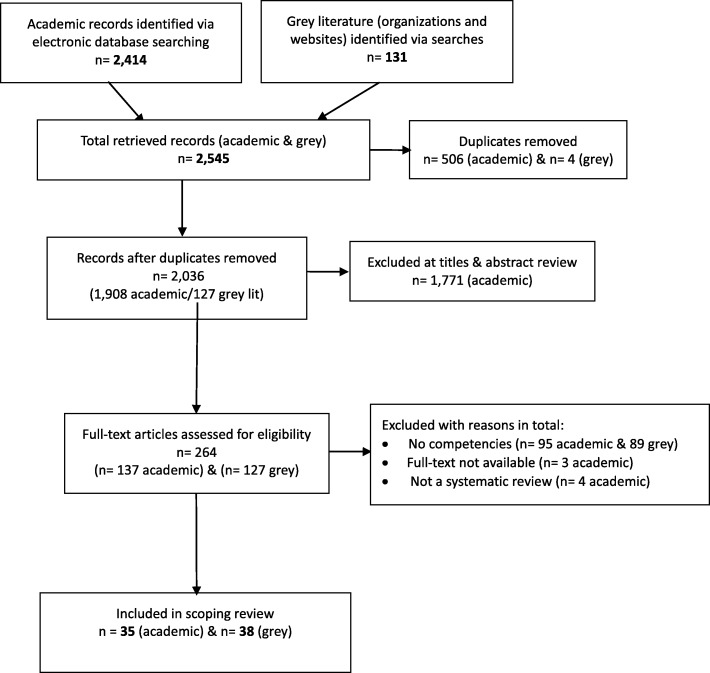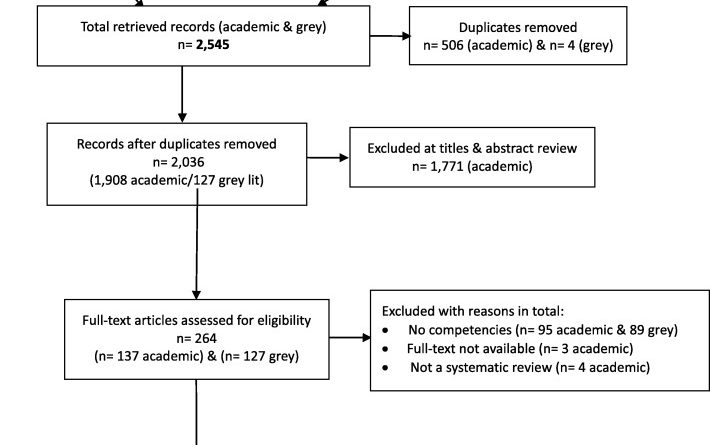Patient-oriented research competencies in health (PORCH) for researchers, patients, healthcare providers, and decision-makers: results of a scoping review.
Plain English summaryBackground The Canadian Institutes of Health Research funded a program, “patient-oriented research” (POR), to vary the best way health research is finished.
POR entails sufferers and their households/caregivers as equal companions on research groups with researchers, healthcare suppliers and decision-makers.
The authors of this paper work via a unit in British Columbia, Canada that features to assist research groups discover ways to do patient-oriented research. We felt that we couldn’t prepare individuals if we did not first perceive what others had realized about what competencies (data, expertise and attitudes) have been useful for members of these research groups.
Method We used a methodology referred to as a scoping assessment to look literature on patient-involved research. Our search included papers in educational journals in addition to data on web sites, coaching manuals, convention proceedings, governmental paperwork and statements from health organizations.
Findings Writers reported the usefulness of many competencies for researchers and sufferers, with fewer competencies for healthcare suppliers or decision-makers.
The principal competencies for researchers needed to do with participation, communication and battle administration; for sufferers they needed to do with research data and expertise, cultural competence and participation.
It was useful that every one group members wish to work as half of a group for the general public good. Conclusions We labored with an advisory group of individuals representing sufferers and their households/caregivers, researchers, healthcare suppliers and decision-makers to assessment our findings.
We concluded that our competency statements are useful for individuals to find out what they should know or study as they be part of research groups.

Patient-oriented research competencies in health (PORCH) for researchers, sufferers, healthcare suppliers, and decision-makers: results of a scoping assessment.
AbstractBackground The Canadian Institutes of Health Research (CIHR) launched an initiative referred to as the Strategy for Patient-Oriented Research (SPOR) encouraging patient-oriented research (POR) that engages sufferers as equal companions in research groups alongside researchers, healthcare suppliers and health system decision-makers.
Other nations have launched comparable initiatives (POR-related work) but there has by no means been full assessment of the competencies wanted by people participating in this work.
Purpose and strategies Our function was to summarize present data on POR and POR-related competencies by conducting a scoping assessment of peer-reviewed and gray literature.
Our aims have been to systematically discover literature, articulate competencies mandatory for research group members, determine research gaps and present suggestions for additional research.
Using commonplace health databases and search strategies, a complete of 2036 sources was retrieved.
Data have been extracted from 35 peer-reviewed papers and 38 gray literature sources. We used an iterative course of to succeed in consensus on competency statements.
Findings and conclusions The principal competencies for researchers have been in classes of participation, communication and teamwork and battle/stress administration; for sufferers the principle competencies have been in research data and expertise, cultural competence/context and participation.
While fewer competencies have been documented for the opposite stakeholder teams, the necessity for understanding affected person involvement in research and data of the wants that research companions have are famous as competencies for healthcare suppliers and decision-makers. Attitudes demonstrating inclination to conduct the work have been famous for all.
The competencies can be utilized to think about studying wants of research group members and for group members wishing to evaluate their very own readiness to serve on a POR or POR-related research group.
Incidentally, we famous the dearth of a widespread vocabulary used to explain patient-involved research, a state of affairs making research and literature assessment/retrieval fairly difficult.
Recommendations for future research and for attaining consistency in language are addressed.

